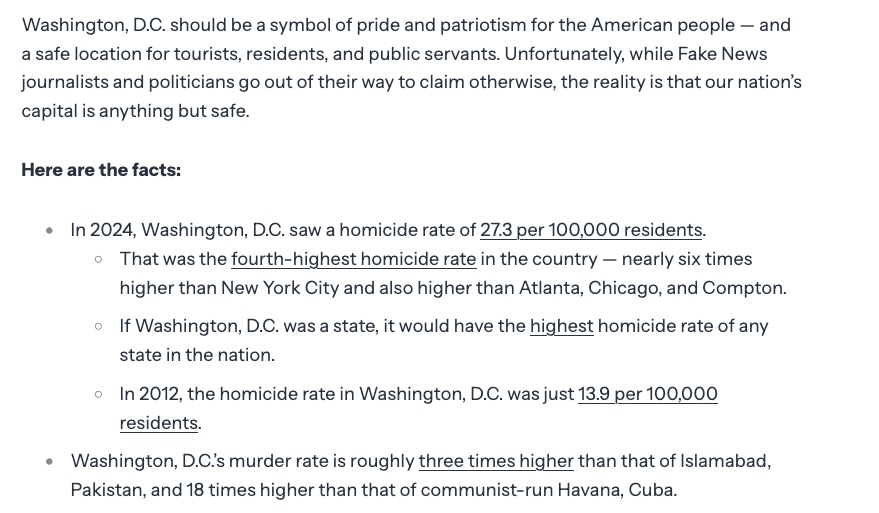August 15, 2025
Washington DC Fights Back: Legal Challenge Against Presidential Police Takeover

In a bold move resonating with echoes of historical defiance, Washington D.C. has launched a legal battle against what is being described as an unprecedented overreach by President Trump’s administration. The city has filed a lawsuit to block the federal takeover of its police force, arguing that the president has exceeded his congressional authority and that the takeover jeopardizes public safety.
The complaint, submitted to a Washington federal court, details the city's urgent plea for judicial intervention to prevent the federal government from commandeering the metropolitan police force. A critical hearing on this matter is scheduled for 2 pm today, drawing national attention to the implications of such a federal overstep.
Amidst this legal turmoil, the discourse around crime rates in D.C. has become a contentious point of debate. Despite claims from the White House suggesting a surge in violent crime, statistical evidence and fact-checking by Snopes confirm that violent crime in the capital is at an all-time low. This stark contrast raises questions about the motivations behind the administration's push for control.
Adding to the controversy, a recent incident involving an individual known as Big Balls, who was allegedly a victim of a carjacking, has been cited by the president as a justification for the emergency takeover. This rationale has sparked further debate and satire on social media, with commentators mocking the drastic response to an isolated incident.
As the city braces for the courtroom showdown, the public and media are poised to watch closely. Coverage by journalists like Kyle Cheney will be vital in tracking the unfolding developments and their broader implications for governance and civil liberties in Washington D.C.
This high-stakes legal confrontation not only challenges the federal encroachment on local law enforcement but also tests the resilience of democratic processes in the face of executive power. As the nation watches, the outcome of this case could set a significant precedent for the balance of power between federal and local authorities.